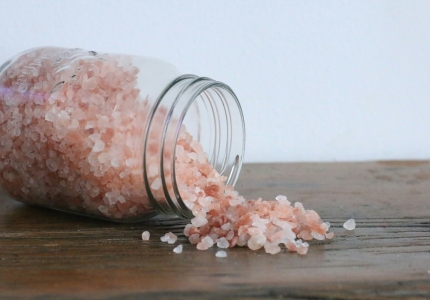In the realm of skincare, few practices are as transformative and essential as exfoliation. It's not merely about achieving surface-level radiance but nurturing our skin's health from within. We’ll delve deep into the world of exfoliation, exploring how it works, its diverse methodologies, and multiple benefits. This article focuses on explaining what is exfoliation, from understanding the science behind it to mastering the art of integration into your skincare regimen for a luminous, rejuvenated complexion.
Understanding Exfoliation
Exfoliation is fundamentally the act of removing dead skin cells from the skin's surface to reveal younger, more radiant skin underneath. Although this shedding process occurs naturally in our skin, exfoliation speeds it up and leaves your complexion looking smoother and more even. Imagine it as a mild yet effective reset button for your skin, eradicating dullness and bringing back a radiant, young appearance.
The Science Behind Exfoliation
The secret to exfoliation's power is its capacity to promote cell turnover, the body's natural process of shedding old skin cells and generating new ones. Although it can also reach the dermis, the skin's deeper layer that provides structural support, this mostly affects the epidermis, the skin's outermost layer. Exfoliation stimulates the skin's regeneration process, which not only makes the skin look more youthful but also increases the synthesis of collagen, which gives the skin greater flexibility and firmness.
Types of exfoliation
There are several varieties of exfoliation, and each has its own advantages and workings. During mechanical exfoliation, dead cells are physically scrubbed away with brushes or other specialized equipment and granular substances like scrubs. In contrast, chemical exfoliation breaks down the bonds that hold dead skin cells together so that they can be removed more easily. Acids like beta hydroxy acids (BHAs) and alpha hydroxy acids (AHAs) are used in this process. Both techniques efficiently exfoliate the skin, however based on specific skin types and issues, they may not be as suitable.
Benefits of Exfoliation
Regular exfoliation has benefits that go far beyond appearance. Exfoliation evens out the tone, smoothes away dead skin cells, and lessens the visibility of wrinkles and fine lines in the skin. Furthermore, it facilitates the unclogging of pores, hence preventing breakouts, and enhances the absorption of skincare products, ensuring their deeper penetration for optimal effectiveness.
When and How Often to Exfoliate
Skin type, sensitivity, and the kind of exfoliation selected must all be carefully taken into account when determining the optimal frequency of exfoliation. Exfoliating as often as three times a week might be beneficial for certain people, but for others with sensitive skin, once a week is probably enough to prevent discomfort. It's critical to pay attention to your skin's signals and modify your exfoliation regimen as necessary to balance the advantages with the risks.
Choosing the Right Exfoliant for Your Skin:
Choosing the right exfoliant is essential to guaranteeing results and reducing discomfort. In this decision-making process, elements including formulation, skin type, and active substances are important considerations. For example, people with oily or acne-prone skin can benefit from pore-clogging exfoliants that contain salicylic acid, while people with dry or sensitive skin might prefer formulas that include vitamin E fruit enzymes, lactic acid. Furthermore, you may further customize the experience to your skin's unique requirements by taking into account the texture and formulation of the exfoliant—whether it's a scrub, serum, toner, or mask.
DIY Exfoliation vs. Professional Treatments:
The decision between DIY exfoliation and in-spa services is one of the enduring discussions in skincare. DIY solutions are more cost-effective and convenient, while professional treatments give you access to cutting-edge knowledge and skills, such as a full-body massage with exfoliation. People used to DIY can customize the process to their own preferences and have more control over the results by using chemical peels or scrubs that they can do at home. On the other hand, people looking for more drastic and fast results could resort to professional procedures like chemical peels or microdermabrasion, which are performed by licensed estheticians. The decision between the two ultimately comes down to personal tastes, financial limitations, and skincare objectives.
Exfoliation and Specific Skin Concerns:
Exfoliation is a flexible tool that can be customized to suit different skin conditions; it's not a one-size-fits-all approach. Exfoliation helps unclog pores, control oil production, and encourage a clearer complexion for people who struggle with acne or recurrent breakouts. Likewise, exfoliation's capacity to increase collagen synthesis can help people battling age spots, fine lines, and wrinkles by making them appear less noticeable. Even those with delicate skin can benefit from exfoliation; just choose kinder products and use caution to avoid irritating your skin.
Precautions and Potential Risks:
Understanding what is exfoliation and knowing its several advantages is great, but there are also hazards involved that need to be known, especially if done incorrectly or excessively. Excessive exfoliation can weaken the skin's protective layer, causing redness, irritation, and heightened sensitivity. It's important to approach exfoliation cautiously, introduce new products gradually, and keep an eye on your skin's reaction to minimize these hazards. Unfamiliar formulations can be tested on a tiny patch of skin to help detect possible irritants and avoid negative responses. Post-exfoliation skincare routines like moisturizing and using sunscreen can also help to further nourish and protect the skin, keeping it robust and healthy.
An essential component of any successful skincare regimen is exfoliation, which provides the skin with a revitalizing and rejuvenating feeling. You may reach your destination of a glowing, luminous complexion by being aware of its workings, customizing it to your requirements, and using prudence. Exfoliation is your ally in the pursuit of flawless skincare, whether you're battling stubborn blemishes, trying to slow down the aging process, or just wanting a smoother, more even tone to your skin. Accept it, treasure it, and see your skin grow in ways you've never seen.



